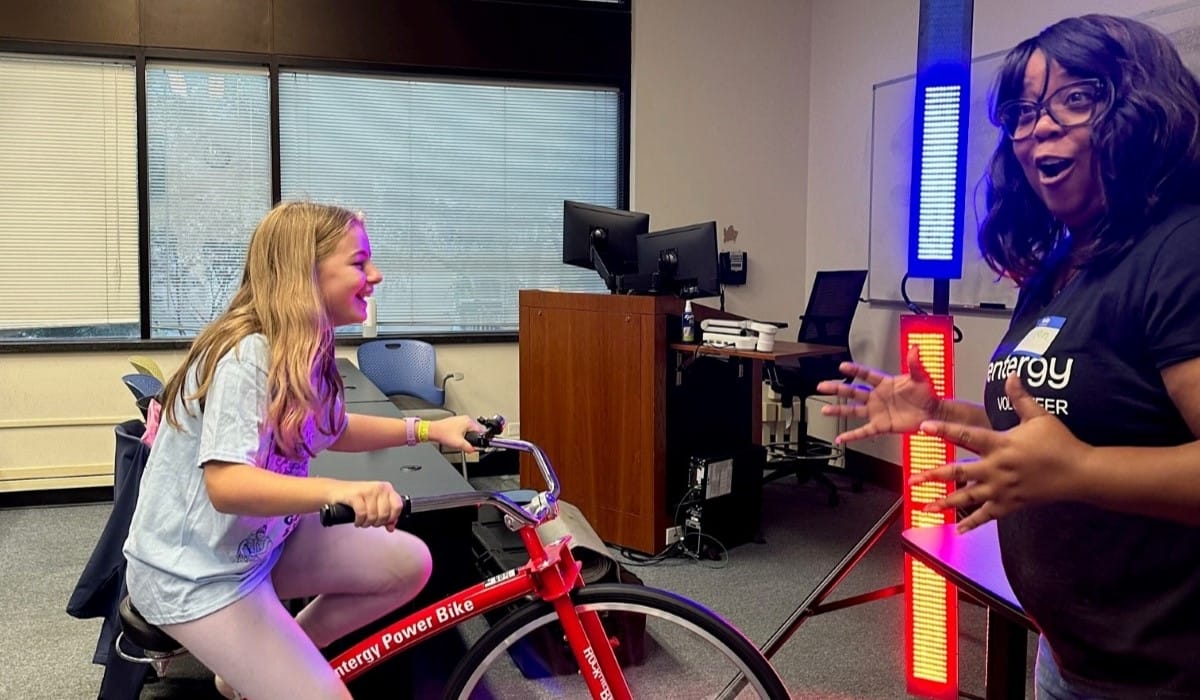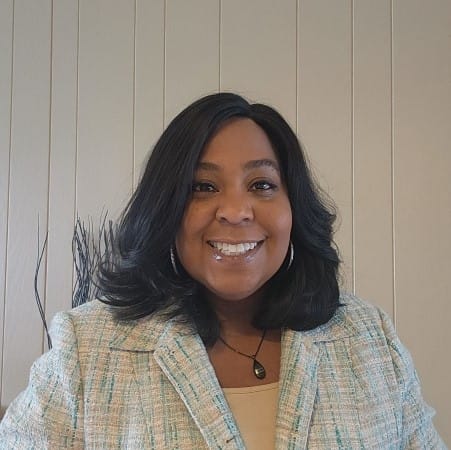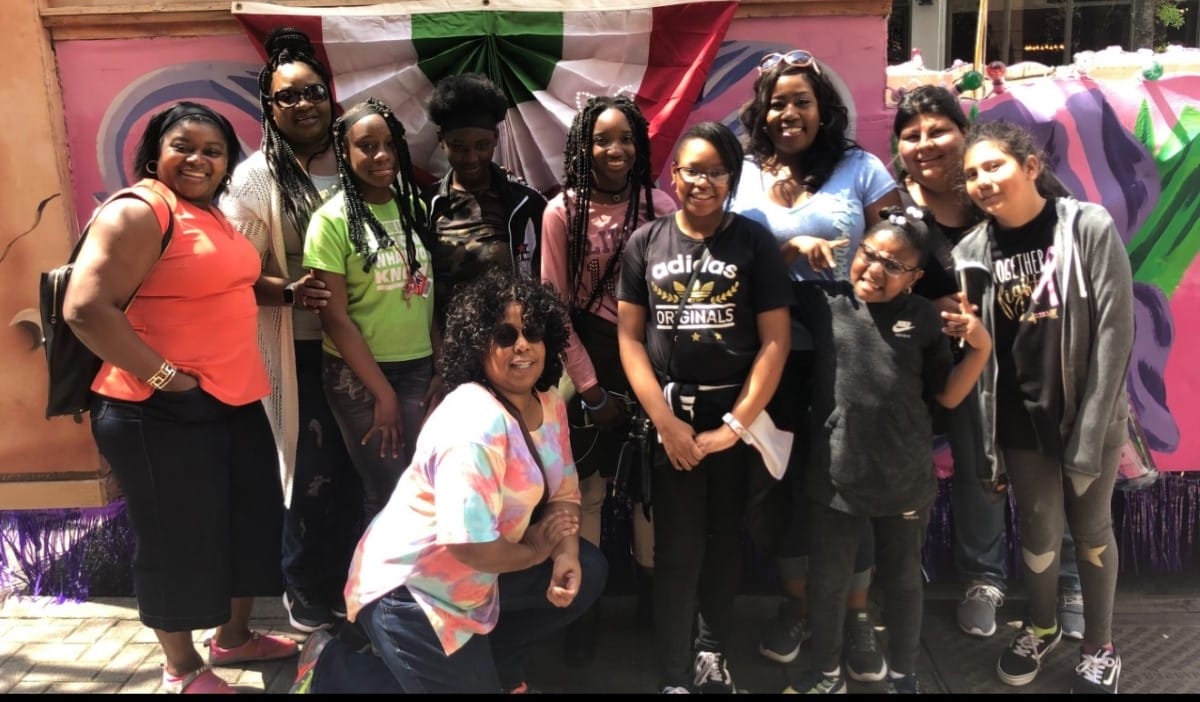How One Woman Champions Opportunity and a Future for Girls in STEM

Meet Daily Point of Light Award honoree Kenyon Webber. Read her story, and nominate an outstanding volunteer or family as a Daily Point of Light.
Kenyon Webber’s volunteer work is changing lives and shifting the narrative for young people, and it’s her own life, history and career that make her a powerful example of expanding opportunities in STEM education. With a focus on strengthening and broadening STEM engagement, particularly for girls, she dedicates her time and energy to nurturing the next generation of scientists, engineers and innovators.
Through mentorship and hands-on engagement, Kenyon actively challenges gender stereotypes and opens doors for students who might not otherwise see themselves in STEM careers. Whether she’s judging robotics competitions, helping students troubleshoot Lego League designs or mentoring young girls during American Heart Association’s STEM Goes Red events, her message is clear: You belong in STEM. Her presence and encouragement have inspired countless students to pursue their passions with confidence and ambition.
One of Kenyon’s most impactful contributions has been her role in launching an apprenticeship and internship program between Entergy and the 1881 Institute of Technology. This partnership connects students with real-world career pathways in engineering and manufacturing, creating bridges between classroom learning and meaningful employment. As a board member of both the 1881 Institute and the STEM Library Lab, Kenyon also supports teacher training and curriculum innovation—ensuring that educators are equipped to spark curiosity and confidence in their students.

From leading monthly STEM activities to devoting many hours a month volunteering in various other capacities, Kenyon Webber embodies a passion for education and opportunity for all. Her work not only uplifts individual students, but also strengthens the broader community by making science and technology accessible and welcoming. Read on to hear more of her remarkable story.
What inspired you to get started with this initiative?
I’ve been volunteering for many years, with girls going into STEM or interested in STEM. I started doing this in college, and what I found was that girls tend to interact differently when they’re around boys. They tend not to ask as many questions. I’ve found that they miss things when they’re not with other girls. I thought, why not do something STEM-related with just girls?
The more I got into it, the more I realized that when girls who like science see an adult who’s in a science-related field, they find safety in that. Science isn’t always the cool thing. But these students might see a grown-up who they might be able to see themselves becoming like, and they may be able to visualize themselves in the field. They also have a tendency to relate better to someone who looks like them. Sometimes these girls don’t relate to the guys.
I was already doing this, but I’m very fortunate to work for a company, Entergy, that loves when employees are doing work in their communities. They encourage this. They nominated me for this award.
Tell us about your volunteer role.
I started working with STEM-related programs. I started a girls program to instill more critical thinking in our community. COVID disbanded that, but I got more involved again after the pandemic. I work with the Girls in STEM program at Tulane, where I present to those young ladies there.
I’ve also presented at Girl Scout events to get them interested. We talk about engineering, circuits, what you can do with science. I do refereeing at robotics competitions. I talk to the girls’ teams, because they always need a little encouragement. There aren’t many girls teams, but two or three teams is better than zero, which is what it used to be.
After several years of doing this, I started to move into board service. I serve on the board of the STEM Library Lab. I speak as a board member to STEM educators at elementary schools about the importance of science and engineering, and strengthening access and engagement of young people in the future. I’m also a board member at the 1881 Institute. They do workforce development for manufacturing and science careers. These students are less traditional students. They aren’t college-bound students, but they also need a chance to make a good living in a science-related field.
Why is this issue so important to you?
When I was interested in science back in elementary and high school, there were not a lot of females in engineering. I couldn’t relate to people in the field. I found it difficult even in college. There were very few females in classes, and its important to reflect different experiences. Sometimes you need to see someone who looks like you to relate to, to be inspired by. I knew that someone needed to step up and encourage these students to get into these science fields. They may not have a person in their families who’s in the sciences. For me, I found that without this type of mentor or chance to see myself in STEM, it was more difficult. And I wanted to give young people something I didn’t have.
What’s been the most rewarding part of your work?
When the light goes on for a person. When they get it, or when they see that they can get it. When I’m teaching, and they ask a question and I can see them understand. When people start to understand – especially in small doses – that encourages them to go on to the next step. That means they’ll ask the next question. Maybe not to me, but maybe to their teacher in school. And that’s really rewarding to me. When they’re inquisitive, when they ask questions, it just fosters more learning.
What have you learned through your experiences as a volunteer?
I’ve learned that we have to encourage questions from young people. I think many times, they ask questions, and they want the answer, but often, they need to critically think. As adults, sometimes we’re lazy and we just want to give them the answer. What we need to be doing is encouraging more questions. Even though young people do things a little differently generation after generation, critical thinking never goes out of style.
Tell us about future partnerships, programs or events that you are excited about.
There are a couple of events coming up in the fall. One of them is STEM Goes Red with the American Heart Association. I typically present on the engineering portion. In the fall, I also do the Girls in STEM – it’s called GIST – events at Tulane. And The STEM Library Lab is a great resource for teachers. I’m on their board. I do encourage teachers and anyone who knows teachers to actually go there and take advantage of resources. Finally, the 1881 Institute of Technology provides workforce development, so it’s a great organization to check out.

Why is it important for others to get involved with causes they care about?
Hands-on work gives you a very different perspective. You can hear about things that are happening in the classrooms, but if you don’t interact with the people – the students, the teachers – you don’t truly understand. There’s always the “real” side of the story, and when you do the hands-on work, interacting with people, it’s the only way to really affect change. If there’s something that bothers you, how can you help?
Any advice for people who want to start volunteering?
It’s easy and it’s fun. There are so many ways to get involved in the community, in so many areas. This is the area I’m passionate about, but there are so many areas. What’s something you want to change? What’s something you didn’t get, that you want others to have? These are the best areas where you can affect some change. It doesn’t have to be very time consuming, and volunteering is something you’ll come to enjoy.
What do you want people to learn from your story?
Everyone has something to give. Everyone has something to contribute to their community.
Do you want to make a difference in your community like Kenyon? Find local volunteer opportunities.